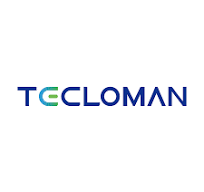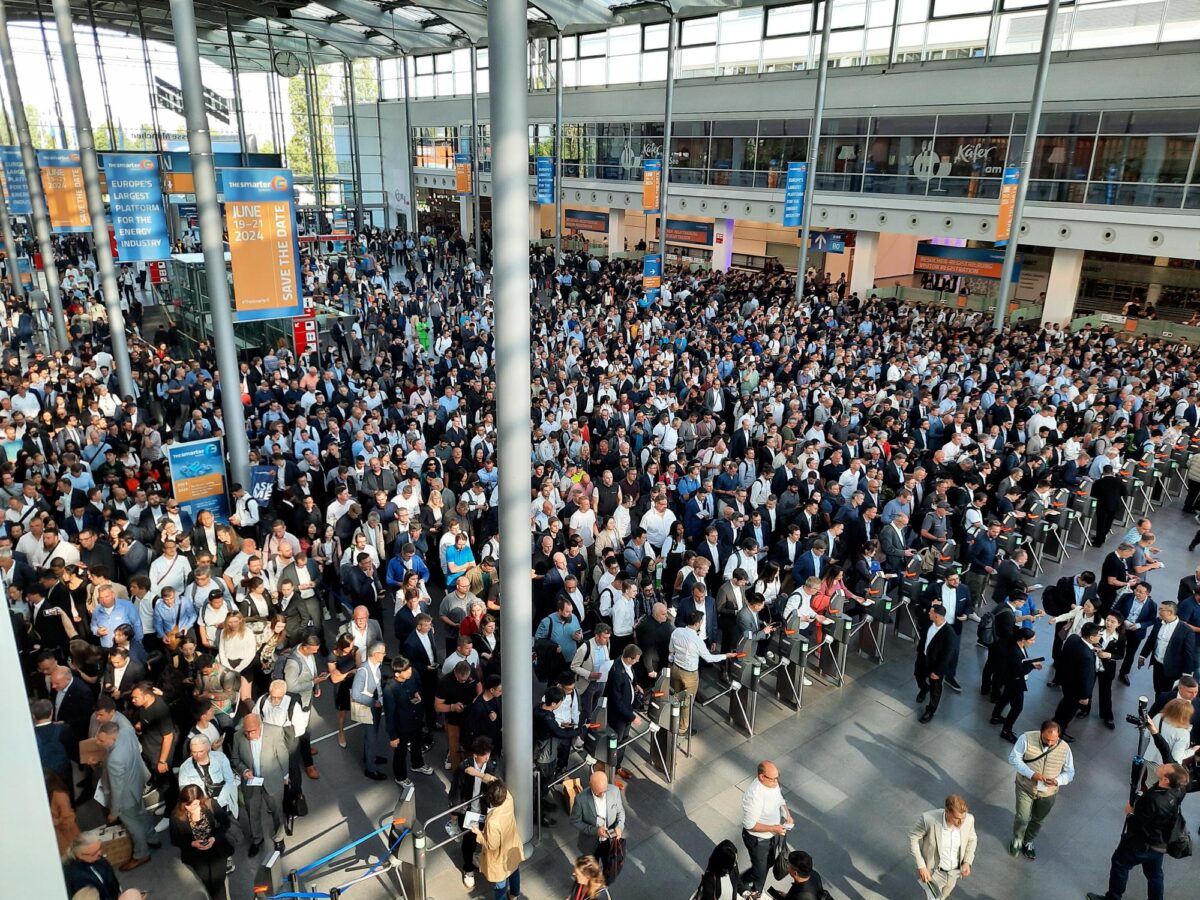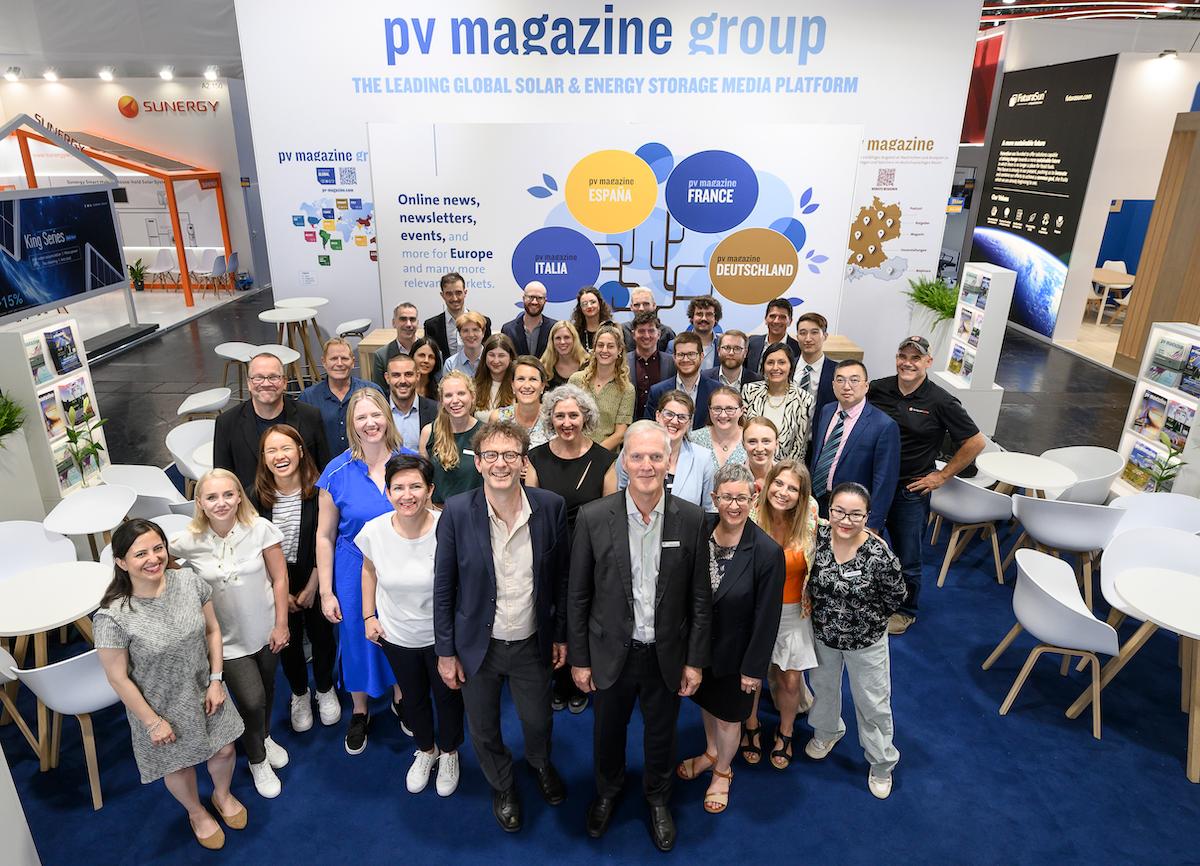
That's all, folks!
Intersolar Europe 2024 has come to an end. Thank you for following our liveblog this year – all the best from the pv magazine team. We look forward to seeing you again in Munich in 2025!
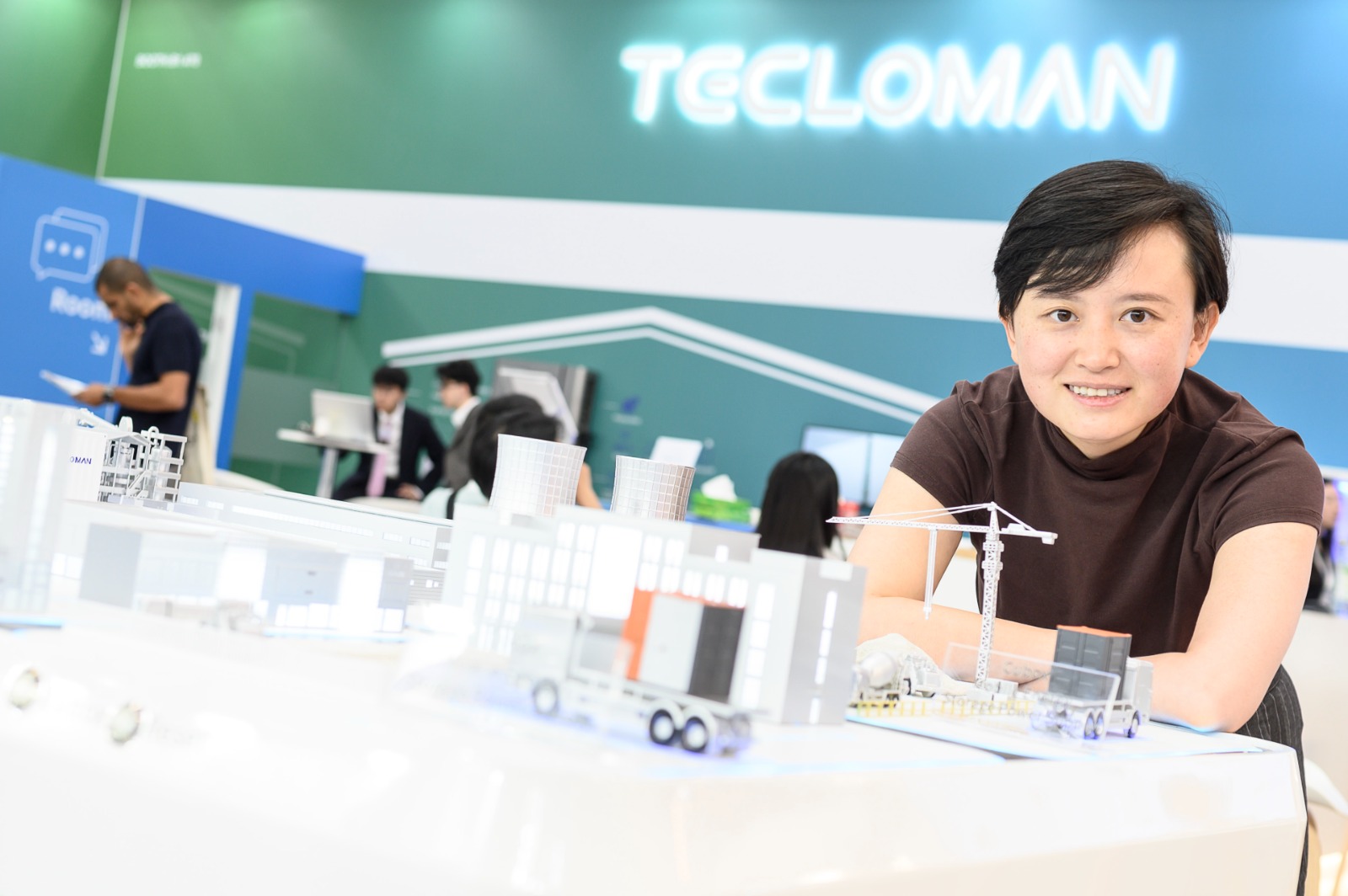
Tecloman unveils Cubox mobile storage platform
Alexandra Hu, Tecloman's vice president of global markets, introduces the company's new mobile Cubox energy storage solution for construction scenarios. The system, which can replace or supplement diesel generators, operates at under 60 decibels to meet city noise regulations.
“We provide Cubox systems to many businesses that do construction in cities,” says Hu.
The Cubox is designed for easy relocation with crane-friendly features. Tecloman is now partnering with a UK construction company to customize units for their cranes.
“Renting a diesel machine costs a lot,” notes Hu. “We're actually cheaper, and more sustainable when it comes to CO2 emissions.”
The Cubox line, ranging from 71 kWh to 1,290 kWh, features 3.2 V/280 Ah lithium ion phosphate battery cells, with an intelligent air conditioner for cooling. It also includes an aerosol fire-extinguishing system for safety.
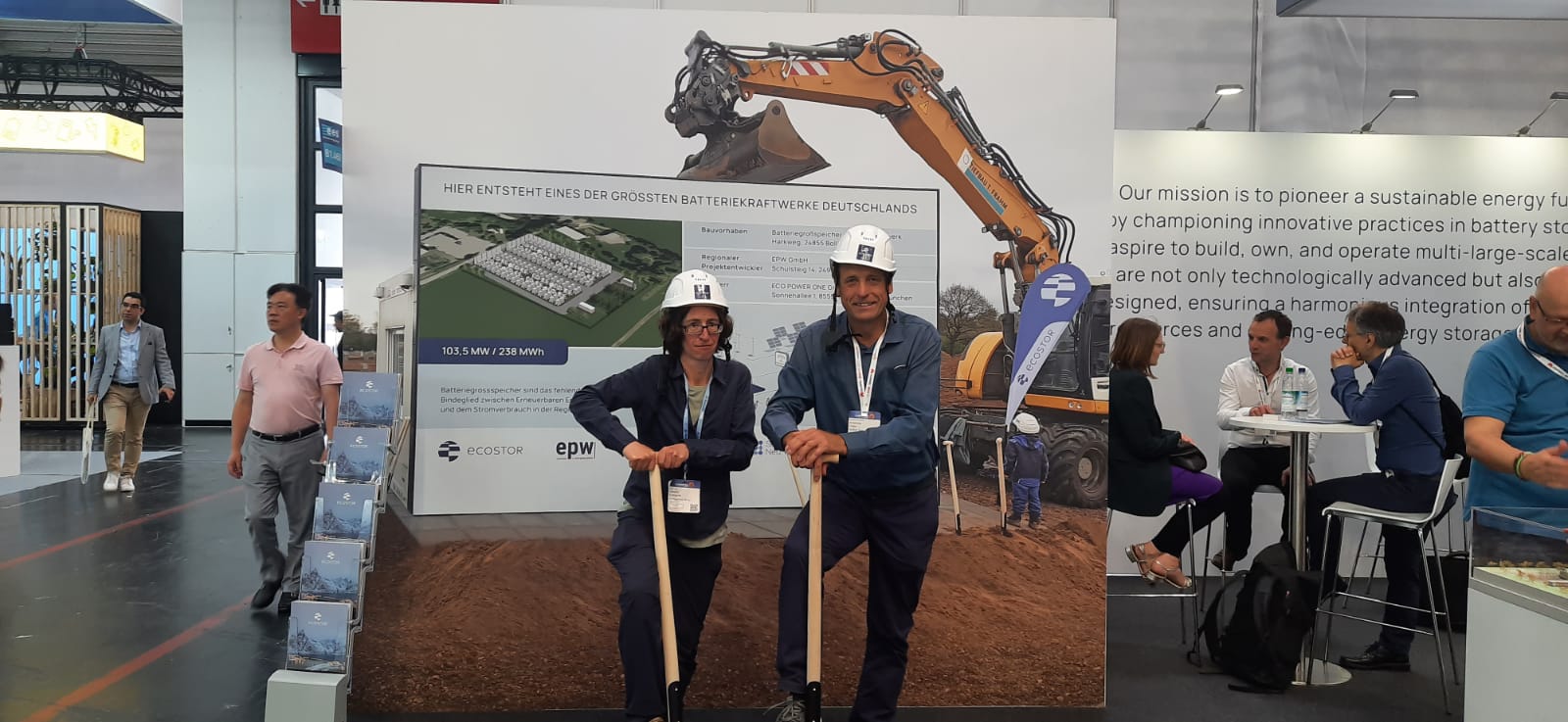
Eco Stor building 102 MW/238 MWh of storage in Germany
Everyone is talking about energy storage these day, but Eco Stor is already taking action. The company recently broke ground on two projects in Germany, totaling 102 MW/238 MWh, set to go online by mid-2025.
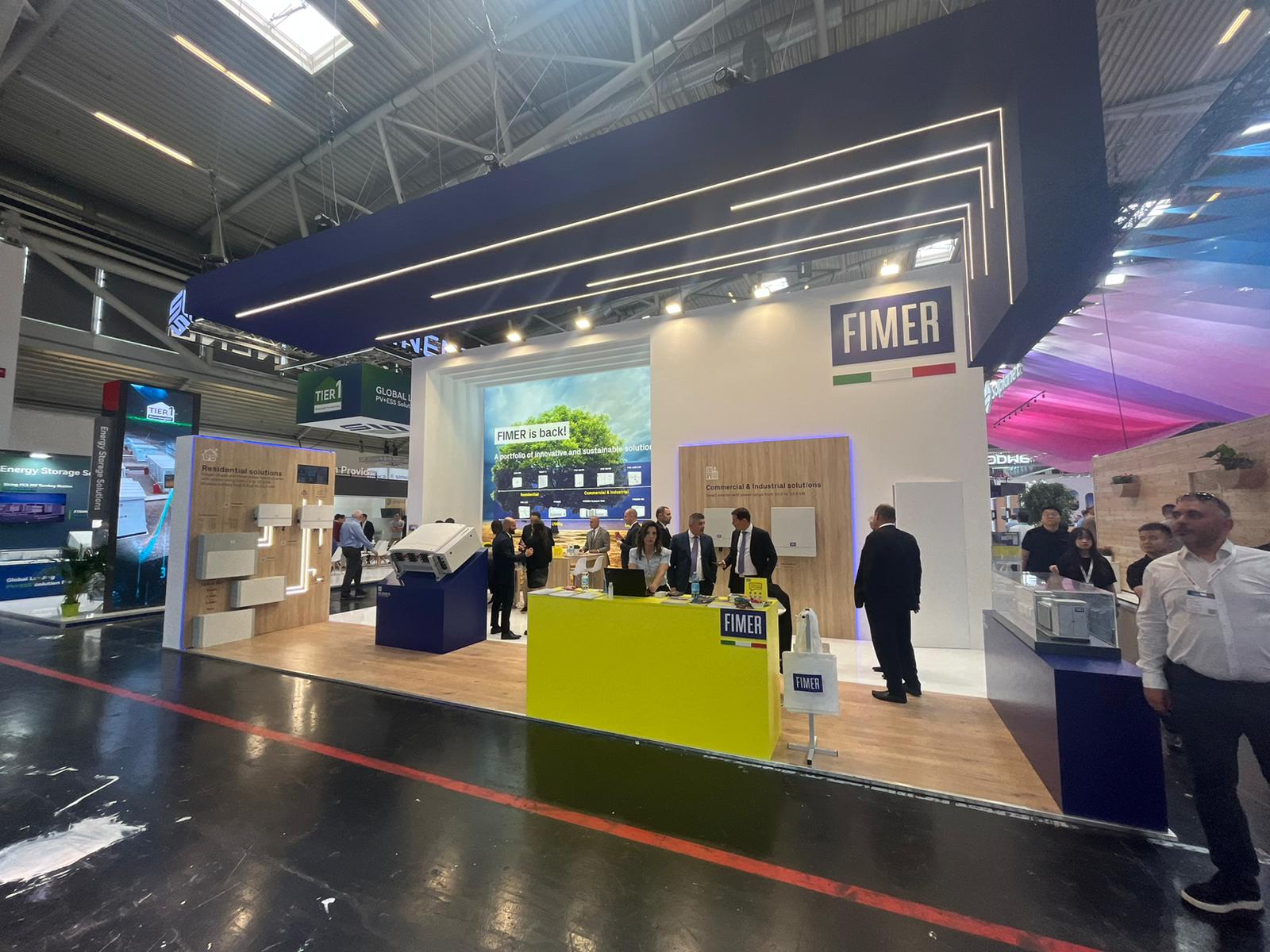
Fimer to announce buyer by year-end
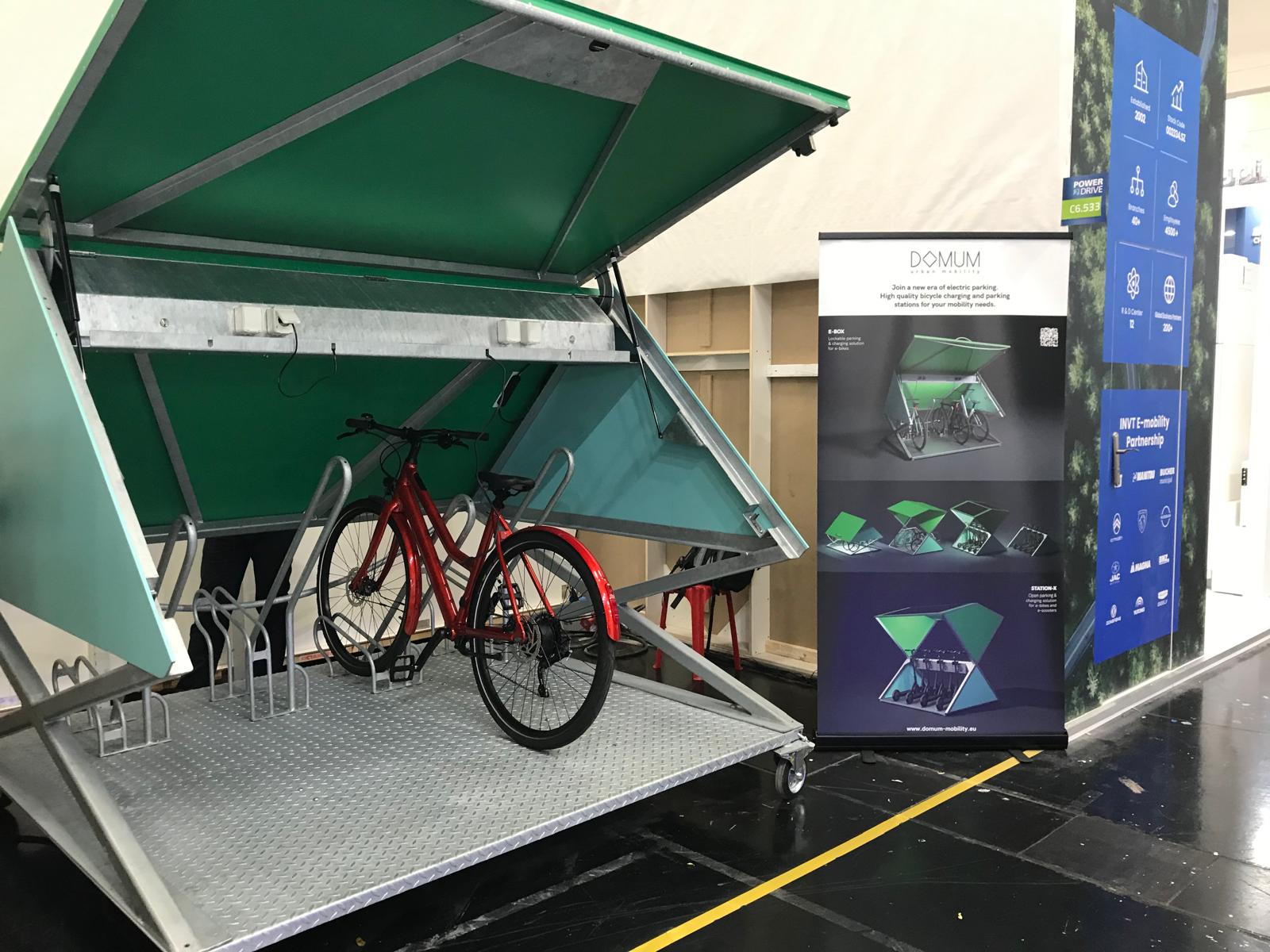
On your bike.
There's no shortage of EV charging solutions on show at Intersolar including products for two-wheeled transportation. Domum Urban Mobility has brought a lockable parking and charging station for bicycles to the show. Grid and solar power supply outlets and a Bluetooth and app lock provide security.
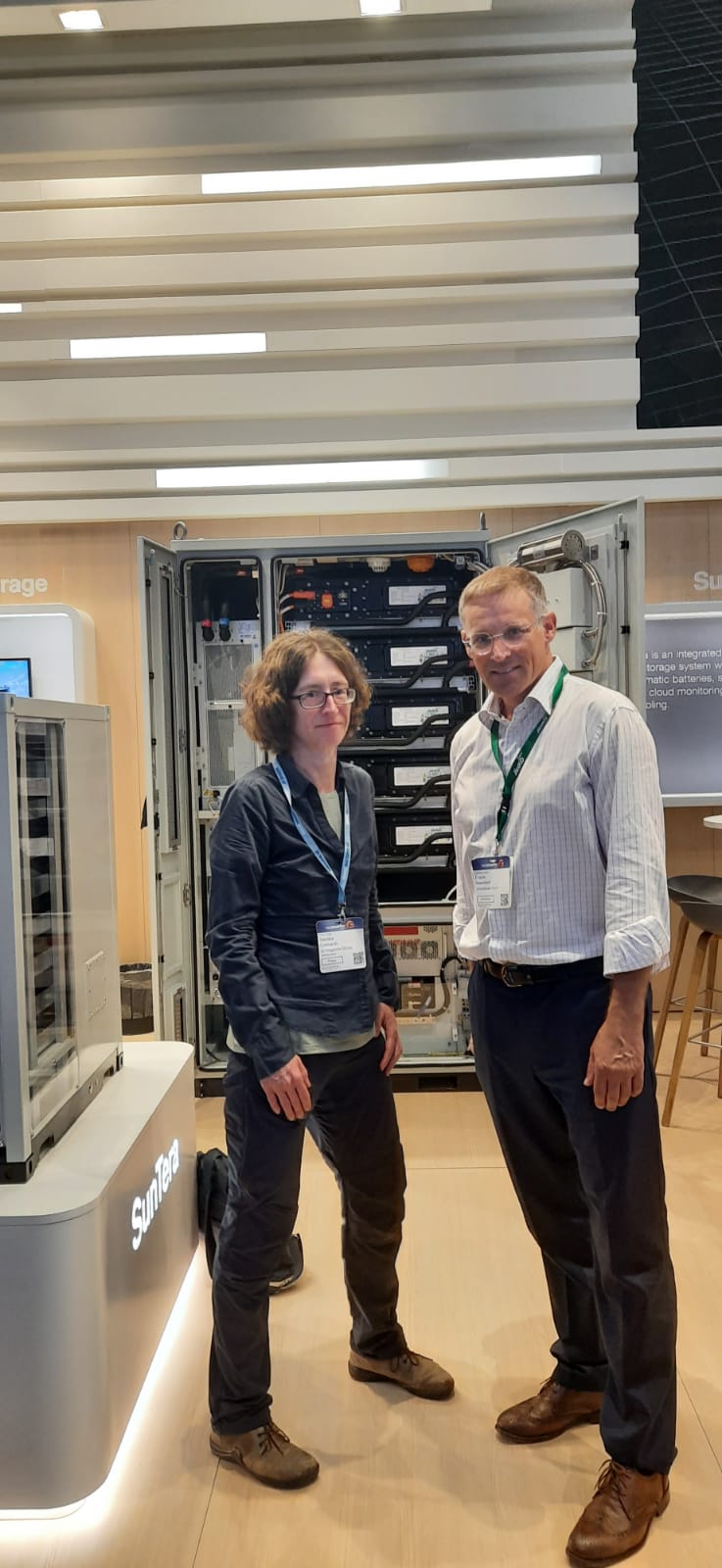
JinkoSolar exec hails storage as 'next big thing'
“Storage is the next big thing,” says Frank Niendorf, vice president Europe for JinkoSolar. The company is displaying its new utility-scale SunTera battery at Intersolar Europe this week.
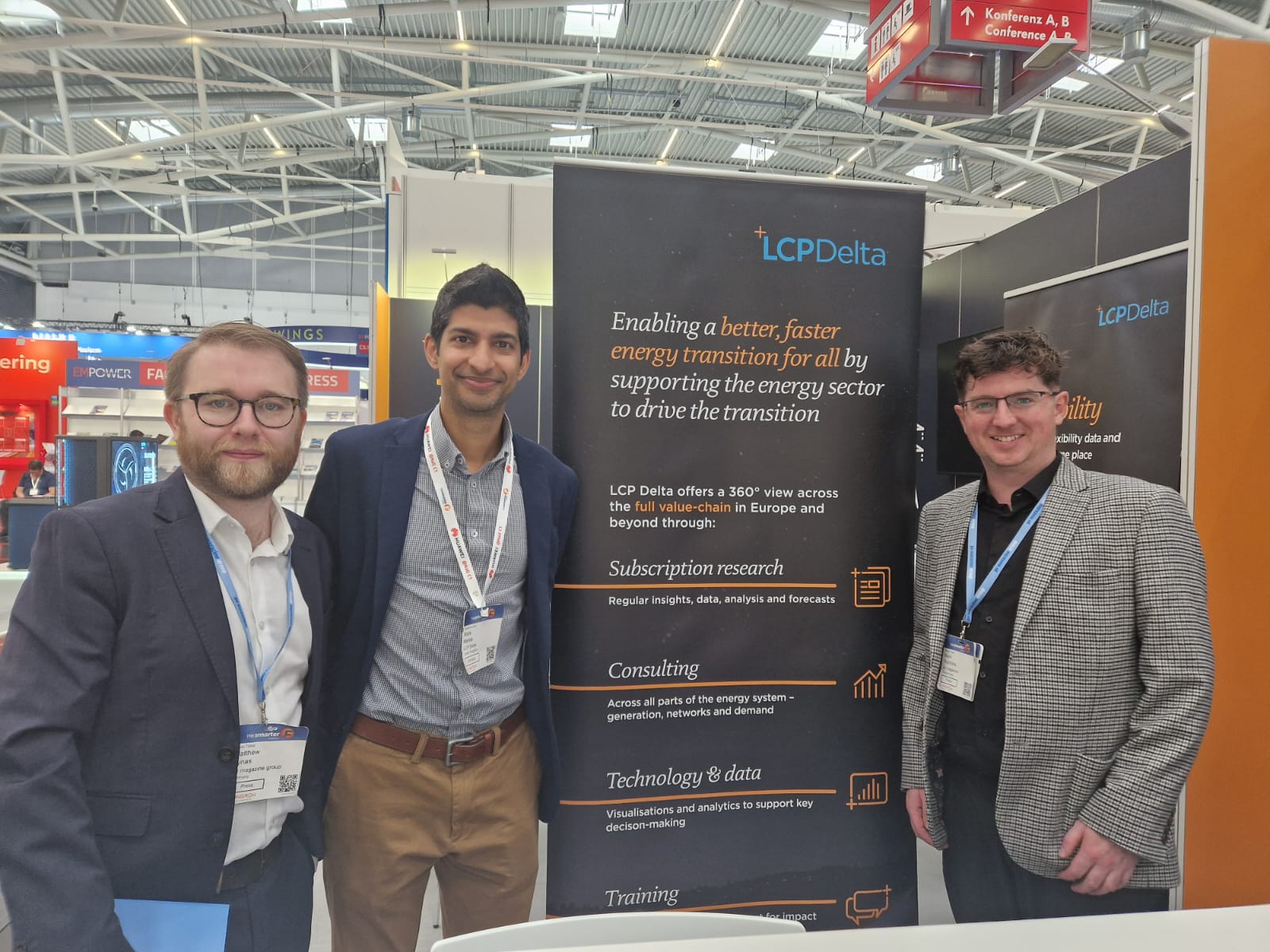
Residential PV’s paradigm shift
LCP Delta’s Rishi Mehta sees a major market shift underway in the residential PV sector, with large companies consolidating to provide complete home energy solutions.
“The fate of solar is increasingly intertwined with that of energy storage, electric vehicles, heat pumps, energy management systems and more. You can no longer talk about these different technologies in isolation.”
With the largest suppliers best equipped to survive in the current environment of very low prices for PV modules and other components, Mehta sees smaller suppliers being swept up by large energy companies bundling some or all of these technologies into a single product. This also often includes giving up control of the energy management, and allowing the supplier to make decisions on battery and electric vehicle charge times, for example.
Mehta sees this option as attractive to those consumers not taking an active interest in their energy supply, and evidence that PV is becoming more mainstream.
“Many now buy PV and residential energy systems on pure economics,” he told pv magazine earlier today. “We’re well past the early adopters stage.”
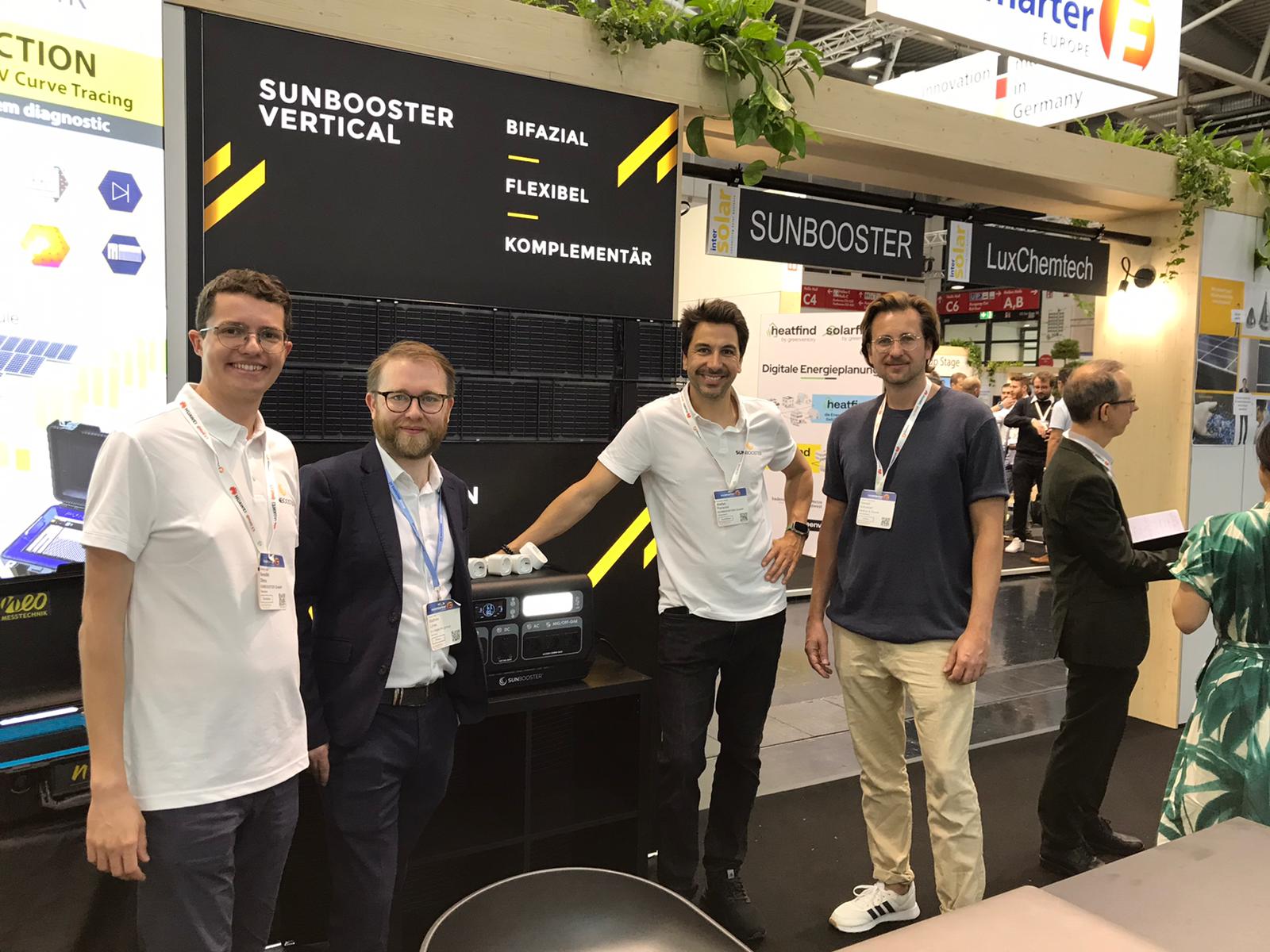
New business
The startups section in hall C5 is where ambition and innovation come together. At Sunbooster, the team claim their portable balcony solar storage solution ticks all the boxes for consumers. Campers heading to the great outdoors can charge the 2,131 Wh battery and take it on the road. Sunbooster has also brought its vertical PV solution for fencing to the show, which CEO Stefan Ponsold said was designed with German, Swiss and Austrian fence dimensions in mind.
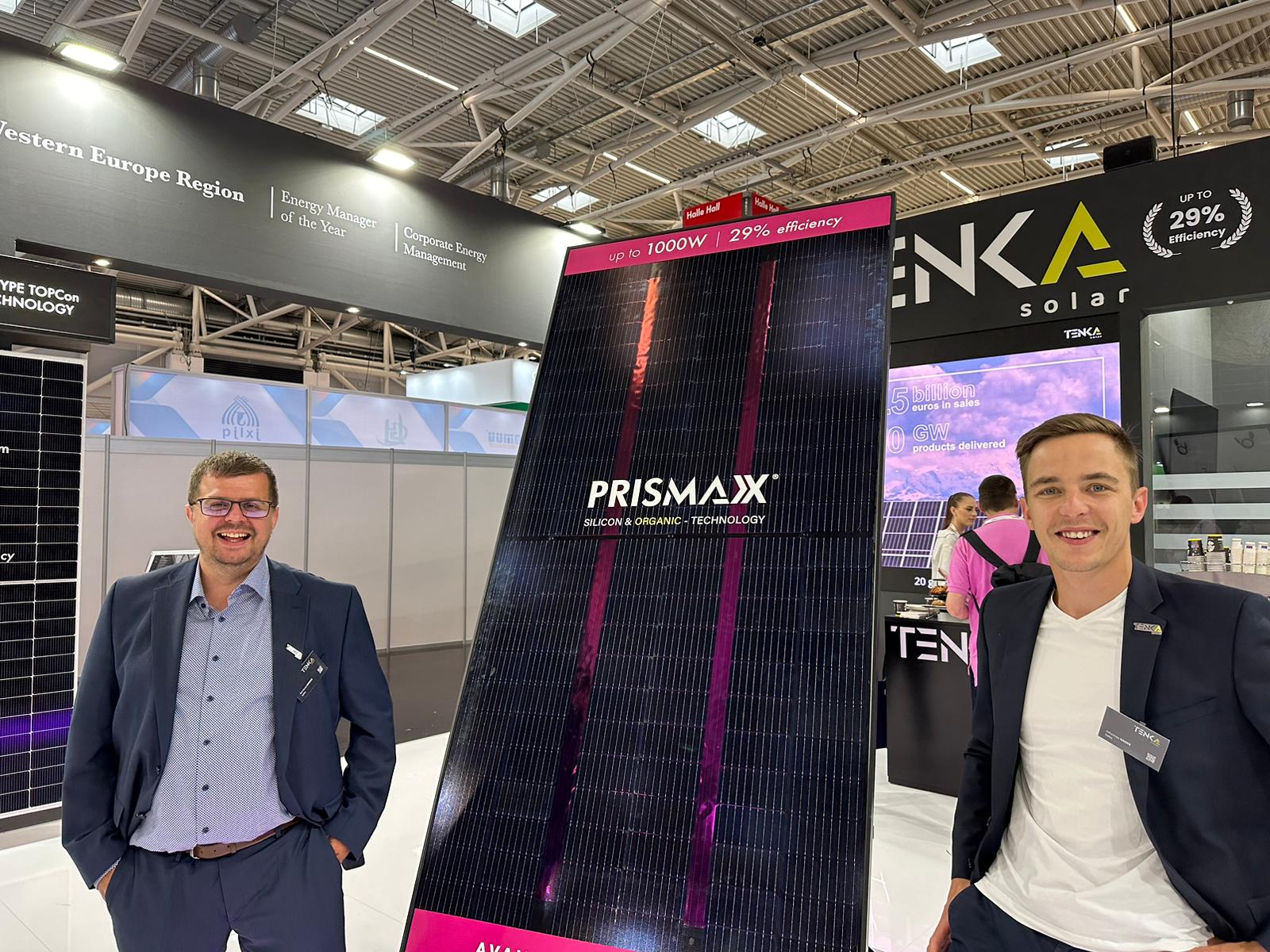
Accidental innovation
Tekna is showcasing a tandem module with a tunnel oxide passivated contact (TOPCon) layer and an organic PV layer, laminated onto a glass front sheet. The module boasts a 29% efficiency and a maximum power output of 1,000 W for residential applications.
Tekna will produce the modules at its factory in Italy. It also has an 8 GW TOPCon cell factory in China. Initially, the company aims to produce 2 GW of tandem modules per year. They will be available in three sizes for residential, commercial, and ground-mount applications.
The company said it discovered the design by accidentally double laminating a module and, impressed with the power output, turned the mistake into a new product.
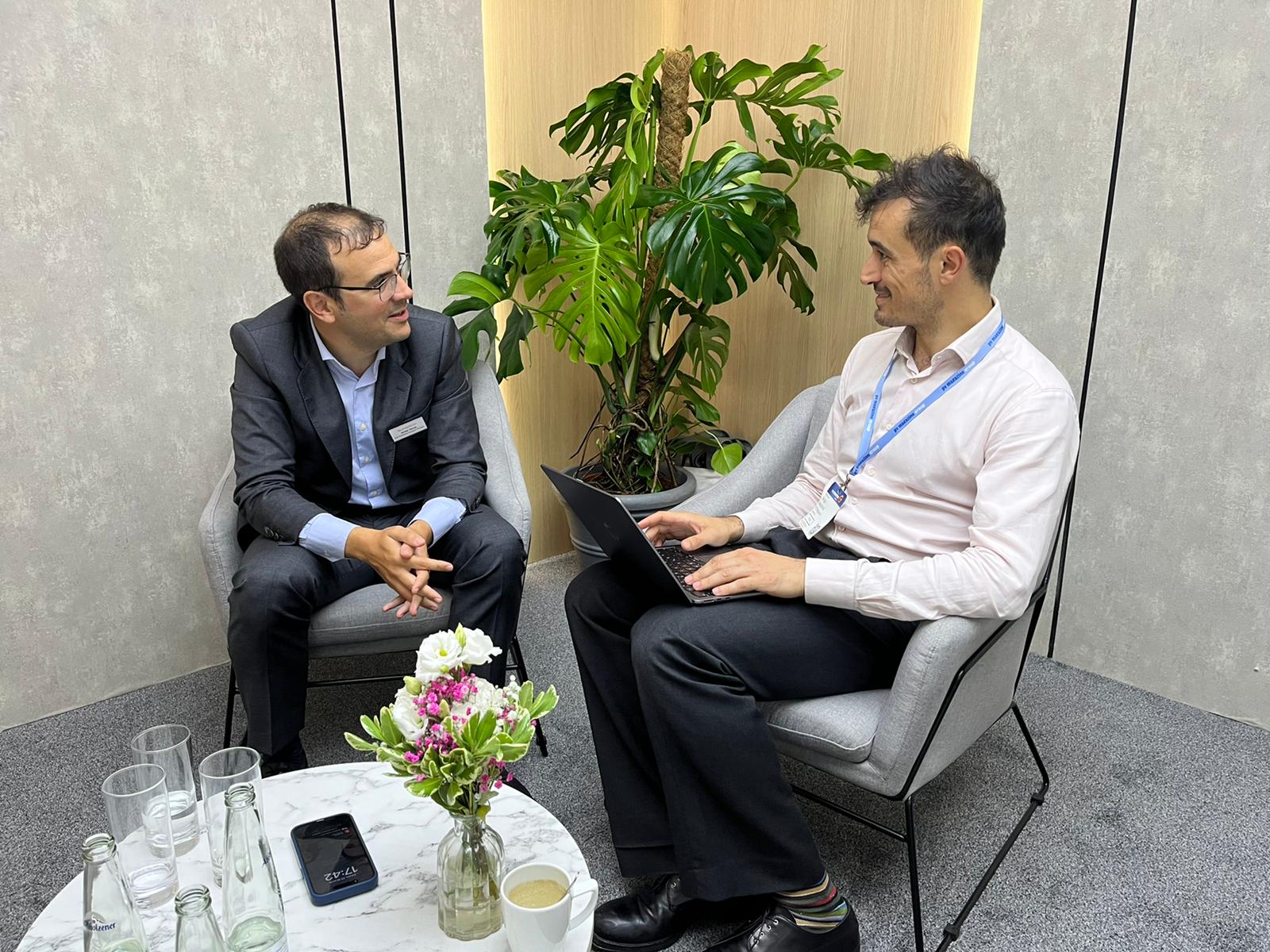
Sungrow expects lower battery installations in Italy
Sungrow says it expects lower-than-forecasted battery installations in Italy. Javier Izcue, vice president Southern Europe at Sungrow, says that the country needs clear rules about its capacity market to unlock its true potential.
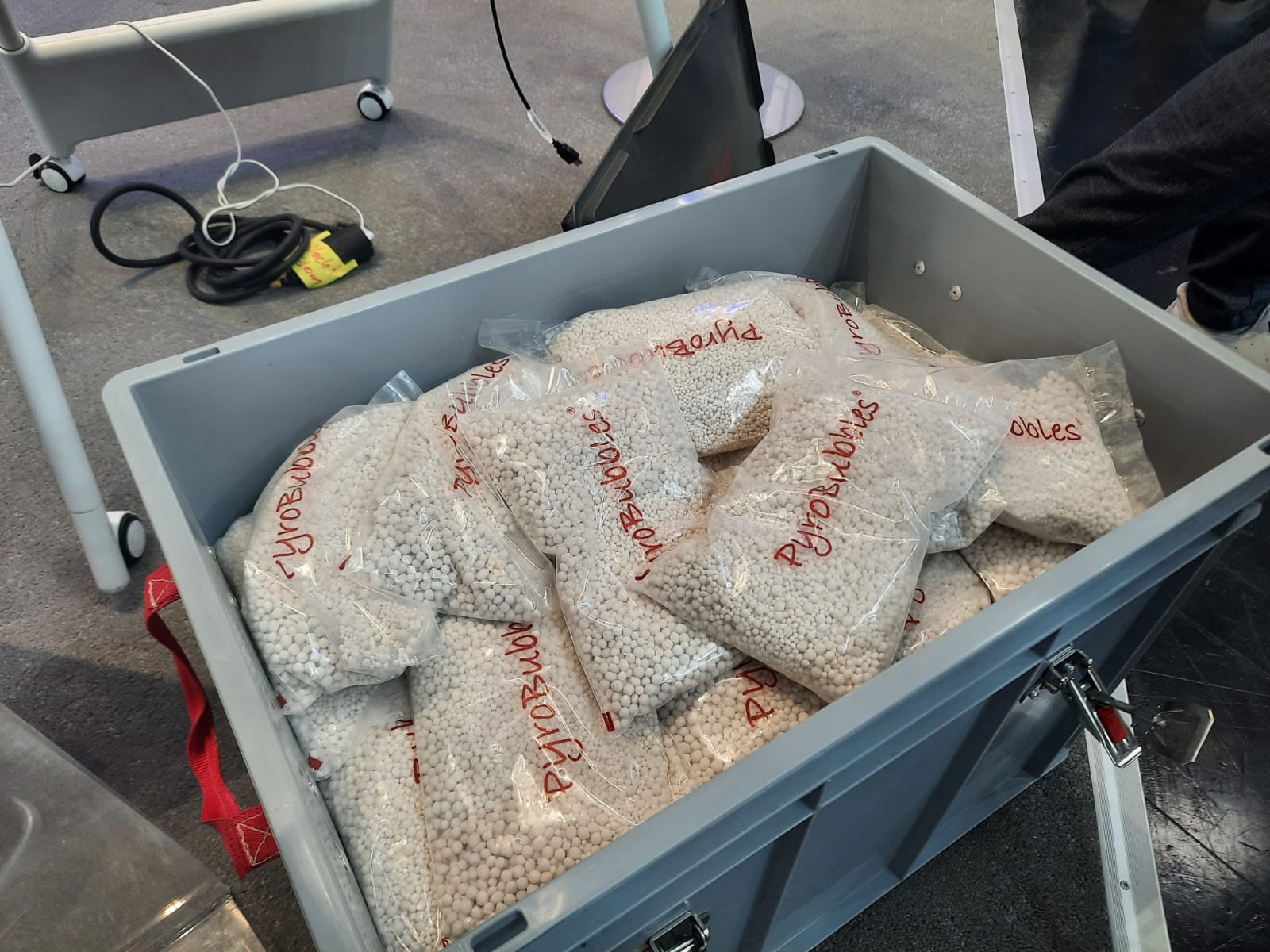
Denios presents safe battery transport solution
When transporting hazardous goods such as battery modules, it is important to protect the environment and yourself. Denios offers PyroBubbles for this purpose. The product ensures that heat does not penetrate transport boxes and that gases are filtered and rendered harmless.
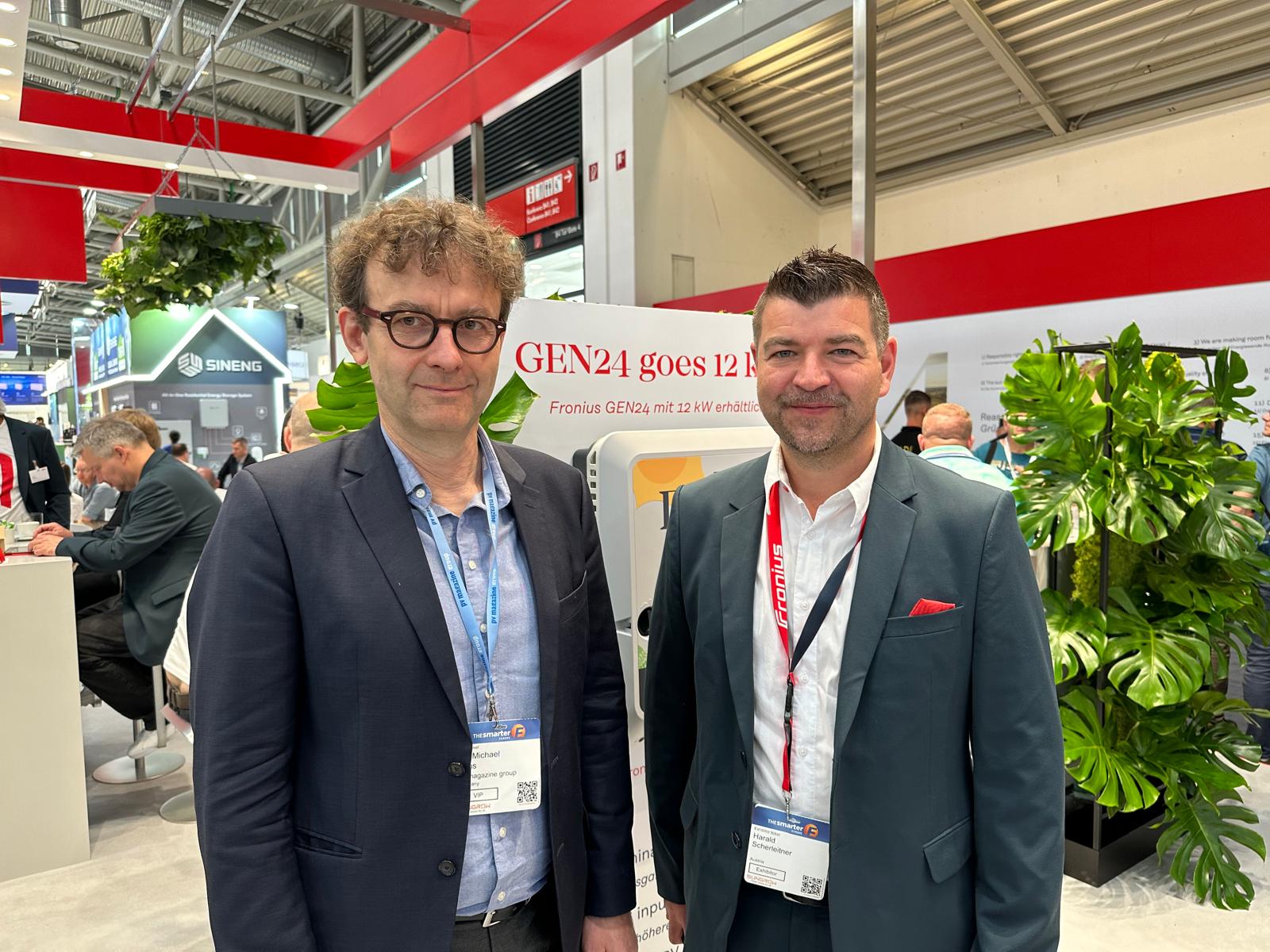
Fronius focusing on the future
Fronius is positioning itself for the future. The decline in the residential market in Germany and market saturation with inverters have affected its business, leading to 350 layoffs a few weeks ago. However, the company has grown by 2,000 employees over the last two years, said Harald Scherleitner, the new head of Fronius' solar unit. The goal now is to become more efficient, without assuming that the market will return to 2023 levels by 2025. The industry needs to improve the quality of its forecasts, possibly through joint efforts, to avoid significant misjudgments of the market. On the product side, Fronius is following the trend toward larger systems and now offers a 12 kW hybrid inverter. The product range also includes two new switchover boxes for emergency power, which are significantly cheaper than previous third-party solutions, and new devices for the C&I sector.
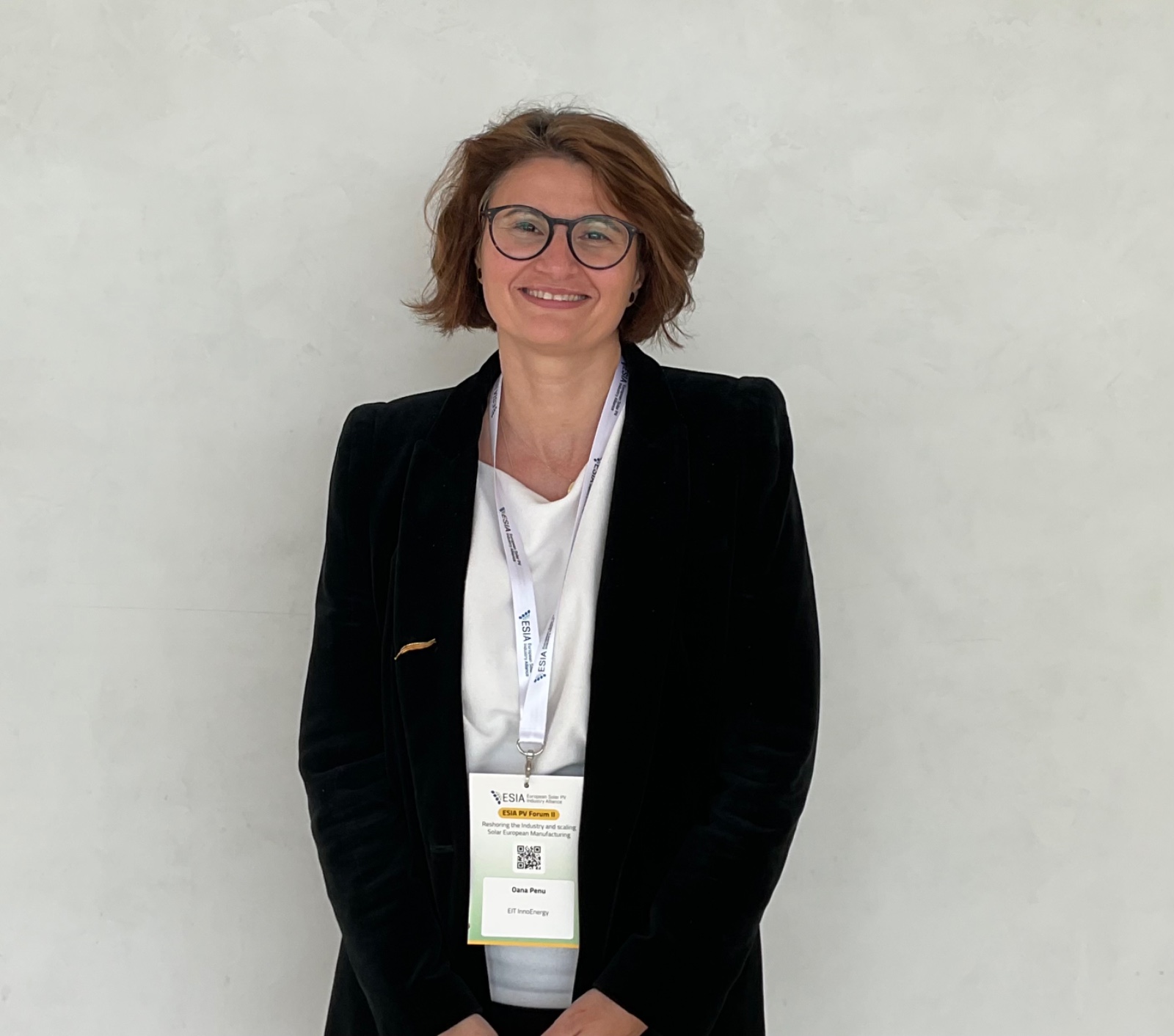
European Solar Academy to train 65,000 workers
EIT InnoEnergy, the European Union’s renewable energy innovation and skills institute, has launched a specialist training initiative for workers across Europe who want to get involved in solar. The European Solar Academy will train workers across the entire PV value chain, with programs tailored to regions, countries, and job specifications. Participants will be industry-certified after completing the adaptable programs, which include 40 courses delivered via a mix of online and in-person sessions.
Oana Penu, EIT InnoEnergy’s skills director, told pv magazine that the institute will refine the course content over the next few months to stay on top of technological developments in fast-moving industries such as AI, robotics, and Industry 5.0 manufacturing, which have unique applications for solar.
The academy will also help the European Union in pursuing its 2030 targets to install almost 600 GW of solar panels and supply 40% of the bloc’s demand for net-zero technologies.
